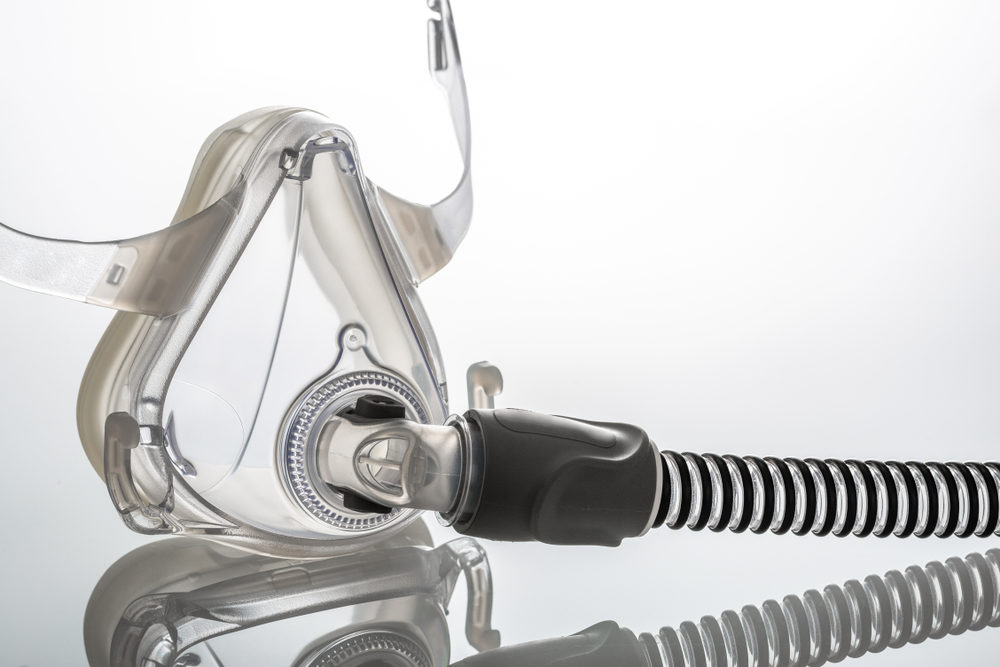
If you find yourself gasping for air as you wake up, snoring loudly, or feeling exhausted after a full night’s rest, you might have sleep apnea. Sleep apnea is a disorder marked by lapses of breath during sleep that can be deadly if left untreated. Medical professionals treat it with lifestyle changes like losing weight and sleeping on the side instead of the back. Still, one of the most common treatment methods is a medical device called CPAP, or continuous positive airway pressure. These machines deliver steady air pressure to help sleep apnea sufferers breathe without interruption. CPAP machines can save lives, but a recent recall from medical device manufacturer Philips Respironics has revealed potential dangers.
The voluntary recall was issued on June 14, and it applies to millions of Philips devices. The notice revealed that the polyester-based polyurethane (PE-PUR) sound abatement foam used to reduce sound and vibration in CPAP machines could break down into the device’s air pathway, leading to users inhaling and swallowing foam made up of dangerous chemicals. The risks of exposure range from headache and dizziness to an increased risk of cancer. According to the FDA notice, Philips received several complaints from people who found foam particles in the air pathways of the machines. While other breathing devices were also recalled, 80% of the affected devices were CPAP machines.
What Is Sleep Apnea?
Sleep apnea affects more than 20 million Americans and is rising in prevalence, partly due to the increase in the national obesity rate. It most commonly affects men, and overweight people older than 50 are at the highest risk. Sleep apnea is unlikely to kill on its own, but it can increase the risk of cardiac arrest and stroke. Sufferers are also 2.5 times more likely to die in their sleep. There are three main types of sleep apnea: obstructive, central, and complex. Obstructive is the most frequent, and it happens when the throat muscles in the back of the throat relax and cause the airway to close. Central sleep apnea is less common, and it occurs when the brain doesn’t send signals to breathing muscles. Complex sleep apnea syndrome is a combination of both obstructive and central disorders.
What to Do If You Have a Recalled CPAP Device
Philips is a leading manufacturer of CPAP machines, and millions of sleep apnea patients are affected by this medical device defect. The foam in the machines can cause asthma, airway inflammation, and respiratory tract problems. Some consumers have filed a class-action lawsuit alleging that Philips knew about the risk before the recall and ignored complaints from patients. Philips has released a list of affected CPAP and BiLevel positive airway pressure (BiLevel PAP) devices and mechanical ventilators.
Continuous Ventilator, Non-life supporting:
- DreamStation ASV
- DreamStation ST, AVAPS
- SystemOne ASV4
- C-Series ASV
- C-Series S/T and AVAPS
- OmniLab Advanced+
Noncontinuous Ventilator:
- SystemOne (Q-Series)
- DreamStation
- DreamStation Go
- Dorma 400
- Dorma 500
- REMstar SE Auto
Continuous ventilator:
- Trilogy 100
- Trilogy 200
- Garbin Plus, Aeris, LifeVent
If you think you may be affected by the recall, you can fill out a form on the Philips website. You should also call your doctor to find out whether you need to stop using your CPAP machine. They may advise you to use a similar device or to try an alternative treatment. You should also report the device to the FDA’s MedWatch Online Voluntary Reporting Form, a database that tracks adverse effects from medical devices.
Related: How to Handle Injuries Caused By Medical Devices
If you develop health problems after using one of the recalled CPAP or BiPAP devices, you may have grounds for a lawsuit. To best determine possible legal options for a defective medical device injury, you should contact an attorney with experience handling medical device failures.
Pogust Millrood is a Pennsylvania-based plaintiffs’ law firm, where the focus of our work is to protect those who are injured by the misconduct of others. We fight tirelessly on behalf of people who are harmed by defective medical devices. For more information, call us toll-free at 888-348-6787 or contact us online.

The Legal Examiner and our Affiliate Network strive to be the place you look to for news, context, and more, wherever your life intersects with the law.





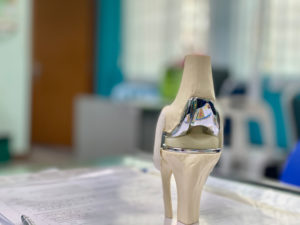
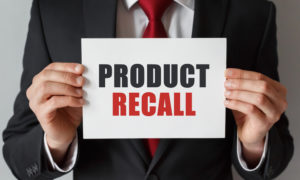
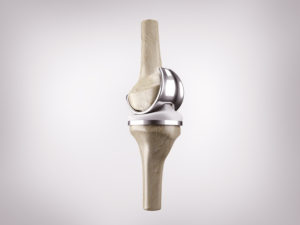
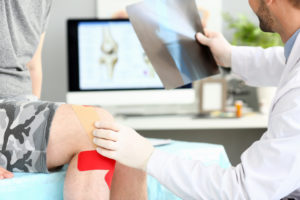








One Comment
Mj
why Phillips did not notify patients direct even though patients registered their machines when purchased
Comments for this article are closed.